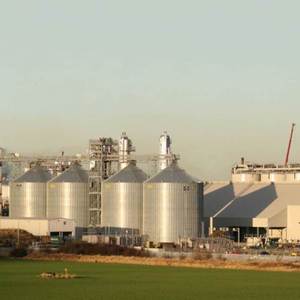CropEnergies expects reduced revenues for fiscal Q1

April 19, 2023
BY Erin Voegele
European ethanol producer CropEnergies on April 17 issued a statement indicating the company expects to experience a significant reduction in revenues, EBITDA and operating profit for the first fiscal quarter of 2023, the three-month period beginning March 1.
CropEnergies primarily attributed the expected drop to normalized prices for ethanol when compared to unusually high prices experienced during the same period of last year. In addition, the company expects to experience higher raw material and energy costs when compared with the first fiscal quarter of 2022, with those impacts attributed to hedging transaction carried in the previous year.
The company currently assumes that increased volatility related to sales, raw materials and energy markets caused by the ongoing war in Ukraine will continue.
The company said it expects ethanol sales volumes to be lower this year, but noted that the introduction of E10 in European countries will help stabilize overall sales of fuel ethanol. Much of that demand, however, will likely to be met by continued high import volumes, according to CropEnergies.
Advertisement
The company currently operates biorefineries located in Zeitz, Germany; Wanze, Belgium; Loon-Plage, France; and Wilton, U.K.
Advertisement
Related Stories
The Michigan Advanced Biofuels Coalition and Green Marine are partnering to accelerating adoption of sustainable biofuels to improve air quality and reduce GHG emissions in Michigan and across the Great Lakes and St. Lawrence Seaway.
EIA reduces production forecasts for biobased diesel, increases forecast for other fuels, including SAF
The U.S. Energy Information Administration reduced its 2025 forecasts for renewable diesel and biodiesel in its latest Short-Term Energy Outlook, released April 10. The outlook for “other biofuel” production, which includes SAF, was raised.
FutureFuel Corp. on March 26 announced the restart of its 59 MMgy biodiesel plant in Batesville, Arkansas. The company’s annual report, released April 4, indicates biodiesel production was down 24% last year when compared to 2023.
Neste has started producing SAF at its renewable products refinery in Rotterdam. The refinery has been modified to enable Neste to produce up to 500,000 tons of SAF per year. Neste’s global SAF production capacity is now 1.5 million tons.
Tidewater expects to make final investment decision on proposed SAF project during second half of 2025
Tidewater Renewables Ltd. has reported that its biorefinery in Prince George, British Columbia, operated at 88% capacity last year. A final investment decision on the company’s proposed SAF project is expected by year end.
Upcoming Events










